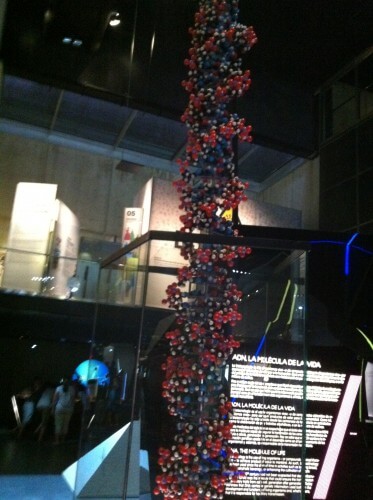The difference between stem cells and cancer cells lies in the DNA packaging

Stem cells are the great promise of future medicine, but under certain circumstances these cells themselves may lead to disease. Stem cells are young cells that have not undergone "specialization", and retain the ability to constantly regenerate. If they do not differentiate into different cell types, they may divide uncontrollably, thus causing cancer. In fact, already several decades ago, Weizmann Institute scientists discovered that there is a connection between cancer and defective differentiation of stem cells (then called "embryonic cells"). Now a group of scientists led by the scientists of the institute discovered a new molecular mechanism, which is probably behind this connection. Their research was recently published in the scientific journal Molecular Cell.
The scientists were able to decipher the molecular details of a process that takes place in the DNA "packaging" during embryonic stem cell differentiation. It turned out that in order for the cells to differentiate properly, a number of building blocks in their DNA packaging need to be marked by a molecular tag called ubiquitin. This marking is required to activate a set of extremely long genes, which allow the cell to differentiate. The scientists identified two switches that control the tagging: the enzyme 20RNF increases the tagging, and another enzyme, 44USP, performs the opposite action - it interferes with the tagging. In addition, it turns out that differentiation takes place properly only when these two enzymes are functioning properly. When the scientists interfered with the signaling by silencing the 20RNF, i.e. the on switch, or disrupted 44USP, i.e. the off switch, stem cell differentiation was inhibited.
These findings can perhaps explain the significance of molecular defects that have been identified in several types of cancer. Thus, for example, there are malignant tumors in the breast and prostate in which the level of 20RNF is lower than normal, and types of leukemia in which there is an excess of 44USP. Lack of differentiation of stem cells often characterizes particularly aggressive cancers. The research team was headed by Prof. Moshe Oren from the Department of Molecular Biology of the Cell, together with Prof. Eitan Domani from the Department of Physics of Complex Systems and Dr. Yaakov Hana from the Department of Molecular Genetics. The team included Gilad Fuchs, Dr. Efrat Shema, Rita Westerman, Eran Kotler, Sylvia Wilder, Lior Golomb, Dr. Ariel Pribloda and Dr. Esther Feldmaser from the Weizmann Institute, as well as Zohar Walchinsky from the Technion - Israel Institute of Technology, d Rev. Feng Zhang and Prof. Shauchon Yu from the University of Michigan in the USA, Mahmoud Haj-Yahia and Prof. Ashraf Barik from Ben-Gurion University of the Negev, and Prof. Daniel Aberdam from the Technion and the University of Nice-Sophia Antipolis in France.
This research belongs to a relatively new direction in cancer research. Instead of genetic changes, he focuses on the so-called epigenetic processes: processes that do not change the genetic information, but affect the way it is processed inside the cell. Understanding the epigenetic changes involved in cancer will advance the search for effective molecular therapies against malignant tumors.
